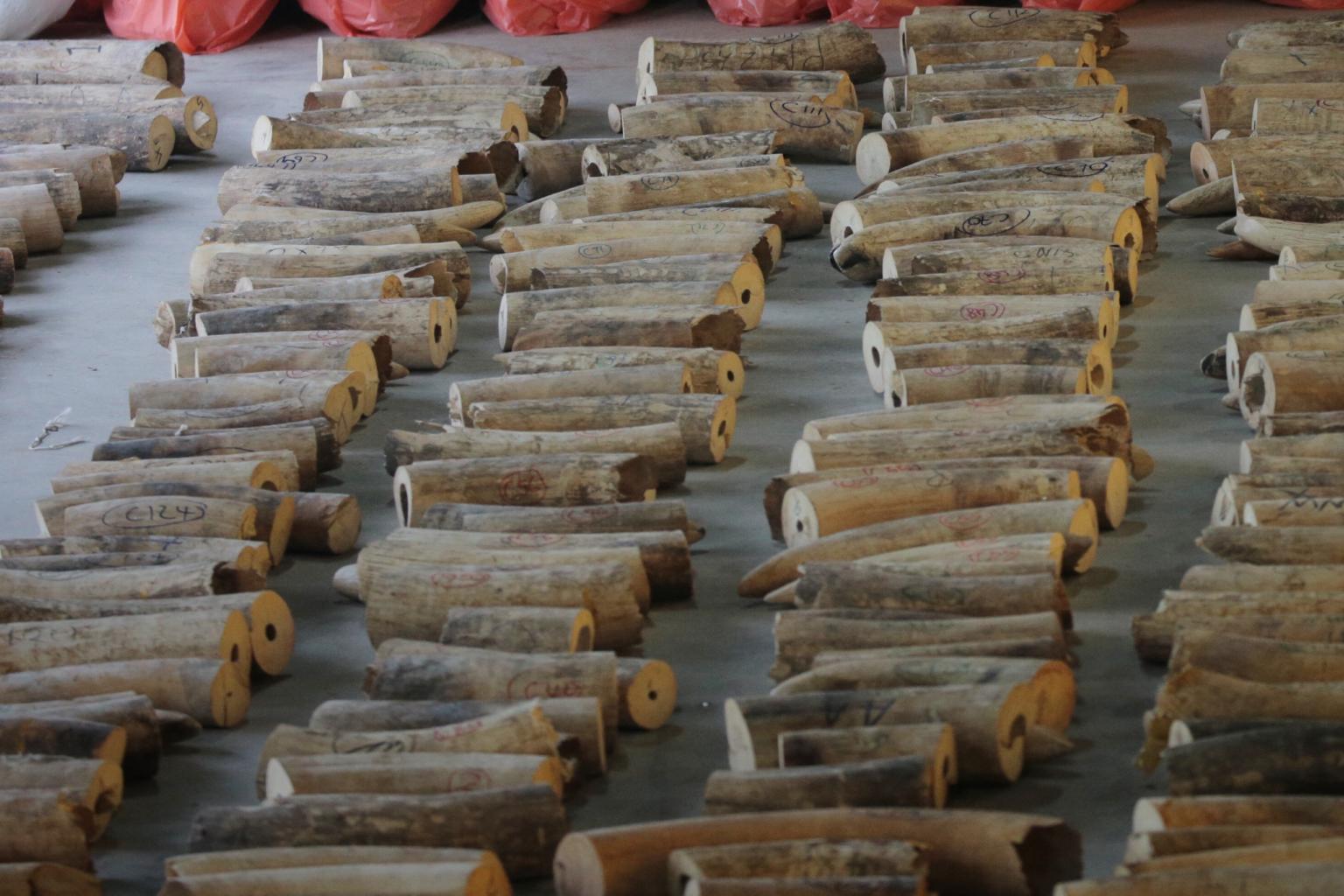Singapore to ban domestic trade in elephant ivory from September 2021
Sign up now: Get ST's newsletters delivered to your inbox

Those who violate the ban on domestic trade of elephant ivory may be charged under the Endangered Species (Import & Export) Act.
ST PHOTO: JASON QUAH
SINGAPORE - Singapore will ban the domestic trade of elephant ivory from Sept 1, 2021, the National Parks Board (NParks) said on Monday (Aug 12).
The sale of elephant ivory and ivory products as well as the public display of such products for the purpose of selling them will be prohibited in Singapore once the ban comes into effect.
The ban highlights Singapore's resolve in the fight against the illegal trade in species listed under the Convention on International Trade in Endangered Species of Wild Fauna and Flora (Cites), said NParks. Singapore is a signatory to Cites, under which international trade in elephant ivory has been banned since 1990.
Once the ban is in effect, traders can donate their stock to institutions for educational purposes or keep them.
NParks said it will continue to work with traders to ensure a smooth transition.
"Public display of elephant ivory or ivory products for educational or religious purposes will continue to be permitted.
"Similarly, those who own musical instruments and personal effects like bird cages that contain ivory may continue to use them in public," it added.
NParks said a public consultation on the blanket ban was conducted on government feedback portal Reach from November to December 2018, and results showed that 99 per cent of the feedback received was supportive of the move.
Dr Leong Chee Chiew, Director-General, Wildlife Trade Control, said: "It is timely that we are announcing the domestic ban of trade in ivory on World Elephant Day. NParks, as the national authority that enforces Cites in Singapore, is committed to stopping the trade of elephant ivory and its products for the conservation and protection of the world's elephants. This is aligned with the views shared by the community who are similarly concerned about the impact that trade in elephant ivory has on the animal's population numbers."
Those who violate the ban may be charged under the Endangered Species (Import & Export) Act. They may be fined up to $10,000 per specimen, not exceeding $100,000 in total, and/or jailed for up to 12 months.
For more information, visit the NParks website, refer to the list of frequently asked questions or write to NParks at cites@nparks.gov.sg


